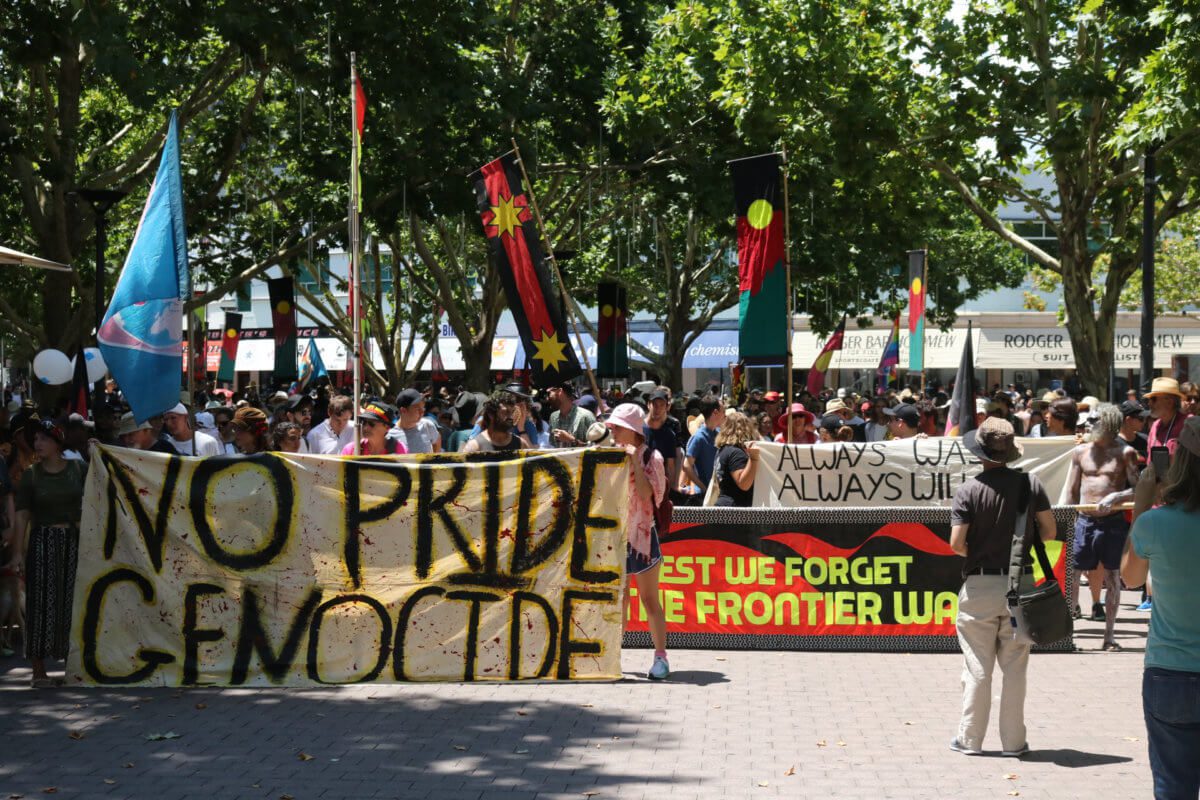As the summer heats up, so does the debate surrounding the date of Australia’s national day. In 1994, all states agreed to declare the Australia Day public holiday on 26 January. This date commemorates the landing of Captain Arthur Phillip’s First Fleet in Sydney Cove in 1788. Although the landing was a pivotal point in Australia’s history, a Review Partners poll last year revealed that only 43 per cent of Australians knew the historical significance of 26 January. If less than half the population understands why we celebrate Australia Day on 26 January, then why must we cling to that date? In fact, a recent Australia Institute survey (Jan 2018) found that 56 per cent of Australians don’t object to the date being changed, so long as some form of public holiday to celebrate our nation is held.
So, what is wrong with 26 January? The landing of Captain Arthur Phillip on this date is synonymous with the invasion of Indigenous land and the subsequent near-annihilation of 60,000 years of Aboriginal and Torres Strait Islander sovereignty. The causal nexus of this invasion with the foundation of White Australia makes them inseparable. For many Indigenous Australians, 26 January is not a day to celebrate, but a painful reminder of the beginning of centuries of colonial oppression and dispossession. It is inappropriate for us to celebrate our great country and all that it stands for, on a day that is toxic to many Indigenous Australians.
Contention around this date isn’t anything new. Since the ‘Day of Mourning’ in 1938, Indigenous Australians have opposed 26 January as a day for national celebration and continue to fight this divisive date. However, in recent years, Australia Day has become a far more politicised affair. Earlier this month, the Greens’ leader Richard Di Natale declared his party will make changing the date a focus for 2018. Although a move in the right direction, some have interpreted this as merely a form of virtue- signalling, rather than a genuine attempt to address the issues facing Indigenous Australians. Labor’s Linda Burney, the first Indigenous woman in the lower house, argued that the Greens are worsening the political and ideological divide by linking a clearly bipartisan issue to a single party. Rather than being a mere stepping stone in the Greens’ popularity campaign, changing the date of Australia Day needs to be the first of many actions we take in becoming a more inclusive nation that values its Indigenous heritage, whilst acknowledging the extensive pain inflicted in its colonial past and the continuing systematic inequality facing Indigenous Australians in our present.
The introduction of a First Nations voice in parliament would provide the opportunity for deep, lasting and significant change through the constitutional empowerment of Indigenous Australians and a meaningful move towards recognising Indigenous self-determination. This proposal was part of the Uluru Statement from the Heart released in May 2017, which encompasses recommendations from Indigenous peoples across the country, following months of deliberation. Unfortunately, the Turnbull government completely dismissed this momentous statement – and so it’s not surprising that we are still debating the date of Australia Day.
When our own prime minister is not open to empowering the most disadvantaged group in our society, how can we expect other people to be? When we live in a system that institutionally denies Indigenous Australians a voice, how can we ever hope to achieve equality?
Whilst simply changing the date of Australia Day is not the solution to addressing inequalities facing Indigenous people, it is a symbolically important step. Amidst the furore of this debate, we must remember that changing the date will not in itself heal the wounds so deeply entrenched in our past. It will not lessen the degree of pain that generations of oppression have inflicted on Indigenous peoples, nor will it restore all that was stolen from them. Changing the date of Australia Day to one that is inclusive and can be celebrated by all Australians shows our commitment as a nation to progressing the rights of Indigenous Australians and creating a truly fair and equal society. But, it should only be the beginning.
Lachlan is the current secretary of Labor Left
We acknowledge the Ngunnawal and Ngambri people, who are the Traditional Custodians of the land on which Woroni, Woroni Radio and Woroni TV are created, edited, published, printed and distributed. We pay our respects to Elders past and present. We acknowledge that the name Woroni was taken from the Wadi Wadi Nation without permission, and we are striving to do better for future reconciliation.
